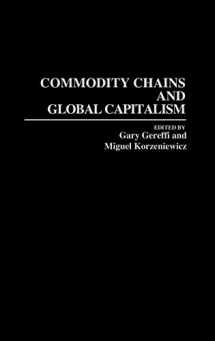
Commodity Chains and Global Capitalism (Studies in the Political Economy of the World-System)
Book details
Summary
Description
The current restructuring of the world-economy under global capitalism has further integrated international trade and production. It thus has brought to the fore the key role of commodity chains in the relationships of capital, labor, and states. Commodity chains are most simply defined as the link between successive processes of manufacturing that result in a final product available for individual consumption. Each production site in the chain involves organizing the acquisition of necessary raw materials plus semifinished inputs, the recruitment of labor power and its provisioning, arranging transportation to the next site, and the construction of modes of distribution (via markets and transfers) and consumption.
The contributors to this volume explore and elaborate the global commodity chains (GCCs) approach, which reformulates the basic conceptual categories for analyzing varied patterns of global organization and change. The GCC framework allows the authors to pose questions about development issues, past and present, that are not easily handled by previous paradigms and to more adequately forge the macro-micro links between processes that are generally assumed to be discretely contained within global, national, and local units of analysis. The paradigm that GCCs embody is a network-centered, historical approach that probes above and below the level of the nation-state to better analyze structure and change in the contemporary world.


We would LOVE it if you could help us and other readers by reviewing the book
Book review



